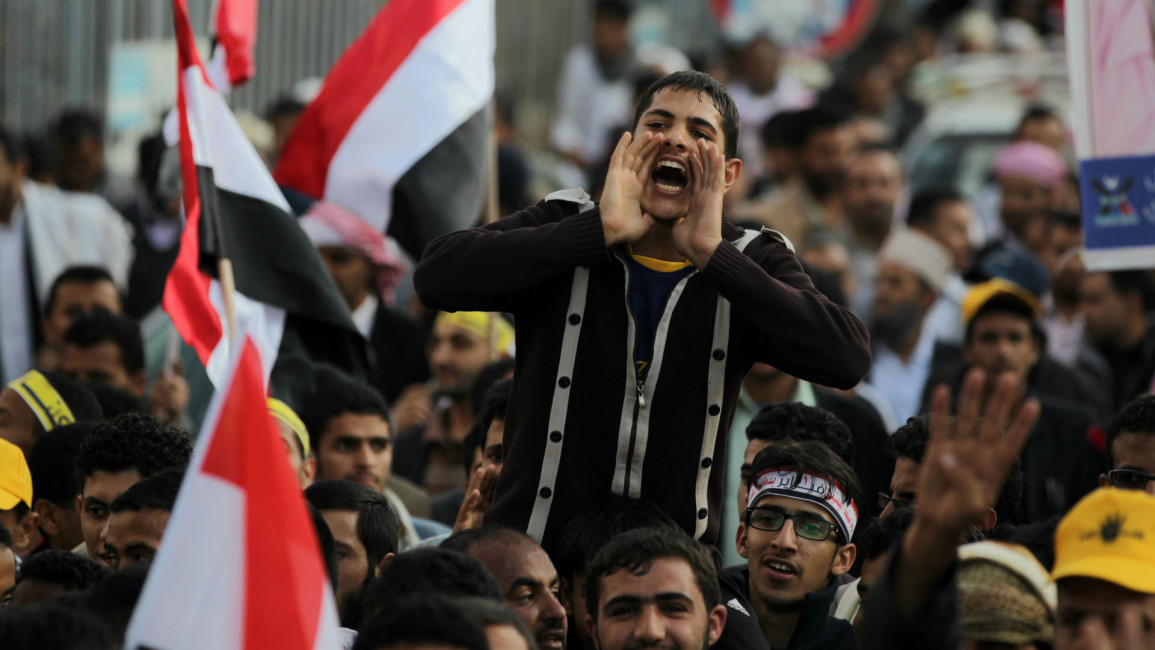
On the anniversary of Arab revolutions
On the fourth anniversary of the Arab revolutions it is clear they have failed to achieve their goals, whether those were dignity, freedom or social justice. Instead people have paid a heavy price for trying to make a change.
Many analysts argue the current situation in Arab states is worse than before the Arab Spring. There are growing sectarian divisions, continuing civil wars and a reshaping of Islamist extremism, represented in its most violent form by the Islamic State group (IS, formerly Isis).
| As difficult as the current situation is, it is a corrective stage |
However, it is important to recognise that for the first time in over half a century Arab societies are dealing directly with their own problems and addressing issues such as democracy and state-building without any intermediary force. This has been difficult because these societies have little experience directly managing such issues.
Conditions are currently difficult in many Arab countries, but not because of the revolutions or what is called the "transitional period". It is the natural result of many years during which Arab societies ability to deal with structural, political, cultural and economic problems has been undermined.
Until recently such problems were considered foreign, and for decades repressive regimes had been suppressing ethnic and religious tensions instead of trying to resolve them.
On this background, Egypt's condition on the fourth anniversary of the 25 January revolution was no worse than before Hosni Mubarak's regime fell in February 2011. Under the current military regime of Abdel Fattah el-Sisi, repressing freedom and killing protestors in Tahrir Square are expressions of problems rooted deep within Egyptian society. As a result of these problems, ideas of freedom have been replaced by an illusion of stability and safety. Perhaps current conditions are part of a natural cycle that will push Egyptians to try again to achieve the goals of the January 2011 revolution.
As difficult as the current situation is it is a corrective stage that has to be endured so long as neglected problems can be faced and overcome.
The situation in Libya, on the other hand, is catastrophic due to increased violence and tribal and regional divisions between Libyans, which were suppressed by Muammar Qadhafi's regime. The Libyan people now need to remedy the situation by building a new onal identity. The military council's governance of the state in Libya only indicates the fragility of state structures and the possibility of further disintegration.
Yemen seems to be following the same model as Libya. On the fourth anniversary of the 11 February revolution the country remains marred in post-revolutionary chaos. The rapid collapse of state institutions to Houthi militias and the rise of al-Qaeda, as well as proposals to divide Yemen,are signs of structural problems in Yemeni society.
Syrians, meanwhile, continue to pay a bloody price every day. Hundreds of thousands have been killed or displaced. This is a high toll to pay for opposing an oppressive and authoritarian regime. The situation in Syria seems to the most representative of the consequences of suppressed divisions in societies affected by the Arab Spring.
Tunisia is different. Tunisians have avoided many of the post-revolution scenarios seen in other Arab countries. This is partly because Tunisians are more familiar with concepts such as democracy and state, and because they enjoy higher economic and educational standards.
Current cycles of violence and repression should not detract from the goals of the revolutions or delegitimise Arab dreams of freedom. Social, political, religious and sectarian tensions existing in the Arab World since it was split into nation-states have now manifested in Arab societies and need to be addressed peacefully. As difficult as the current situation is, it is a corrective stage that has to be endured so long as neglected problems are not left to fester.
On the fourth anniversary of the Arab Spring revolutions, we should not beat ourselves up as some want. No matter how grim the outlook, hope is the only option. It was hope alone that inspired the masses to start a revolution and demand their natural rights.
This article is an edited translation from our Arabic edition.
Opinions expressed in this article remain those of the author and do not necessarily reflect those of al-Araby al-Jadeed, its editorial board or staff.



